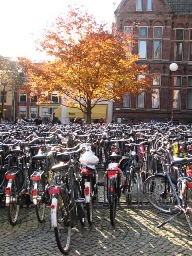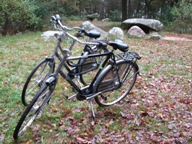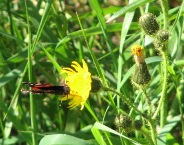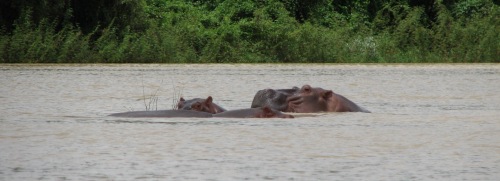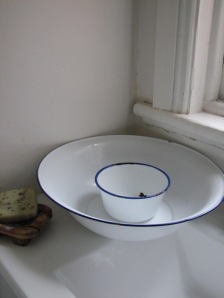
I’ve been in a state of shock for the past few weeks. A state of disbelief.
When the water bill arrived, I had to look at the figures at least twice. Then, still doubtful, I walked out to the front yard to check the water meter.
The water company had got the reading correct. How could this be?
I’ve been having five-litre bucket-baths since July 14. Our water usage should have plummeted. And it hasn’t. So, since the bill arrived, I have been trying to figure out how our household’s water-use has changed, and why it hasn’t dropped despite my committment to using less water for personal hygiene. This is what I’ve come up with:
Less water:
Showers:
I’ve replaced my long showers with five-litre bucket-baths. In addition, my partner’s work moved to a new building with better facilities, and, because he rides to work, he is able to have a shower when he arrives at the office in the morning, instead of when he gets home at the end of the day.
Garden:
As it’s been a wet winter, we’ve not had to water our vegetable garden very often.
More water:
Bath:
Our little girl outgrew the baby bath and she has been washing in a few inches of water in our big bath two or three times a week.
Laundry:
Our child has also been responsible for a big increase in our washing. She has been churning through cloth nappies, bibs, face washers and other clothes, the outcome of her eating “solid” food and turning into a pint-sized explorer.
Cleaning:
Now that baby is entering the toddler phase, our house needs cleaning far more than it used to (sigh). That means mopping the tiled areas, cleaning the bathroom and wiping down surfaces in the kitchen (and everywhere else in the house that little fingers can reach).
So despite my committment to having bucket-baths, I haven’t managed to reduce our water consumption. But does this mean I have failed?
I’d answer: no. I’ve learnt several valuable things from this challenge.
First, I’m taking it as a great demonstration of how quickly water usage can change, as well as an opportunity to better appreciate these changes. If I hadn’t undertaken this experiment, I wouldn’t have seen the impact of our extra water use (mostly caused by our baby). I hope that in the future I’ll be more aware of how our behaviour can have a big impact on our overall water use.
At the same time, I’ve become more conscious of a continually running tap, wherever it might be (kitchen, bathroom sink, etc).
Second, my perspective on showers has changed – I appreciate them far more than I used to. While I’ve gone back to having normal showers, I reckon that they’re shorter than what they had been. A few minutes under the flowing spout seems luxurious after bathing in a meagre five litres of water.
I used to tell myself that I needed to have a long shower for a variety of reasons, including:
… to wake up in the morning.”
“… to get clean.” (How clean do I really need to be? And am I going to be drastically cleaner after a 12-minute compared to a two-minute shower?)
… to soothe my soul after a long or hard day.”
And beyond these reasons, I’ve been good at telling myself that I deserve a long shower. It’s my little treat. Sure, water is precious, but this is just a little reward for “this” or for “that”. Never mind that what I “deserve” has steadily grown over the years, and never mind that I’m also good at giving myself other little rewards during the day (another cup of coffee, a second helping of cake…). This exercise has shown me how easily I can fool myself into indulging in luxuries, in putting myself on a pedestal, of setting up a little kingdom for myself within my home. It’s all too easy to make myself Queen “for a day”, which quickly becomes every day.
As a Christian who believes that every bit of of life belongs to God, and that I can worship God in every part of my life and living, there is another dimension to this issue of my water use.
I’ve realised that my primary relationship with water isn’t about me as a consumer. Matthew Farrelly in “A Covenant with the Earth” explains that God wants my place and role on earth to be characterised by humble service, which is described in a similar way to a priest’s service in the temple.
He explains: “We have been placed within creation to mediate God’s presence, embody God’s posture, and enact God’s purposes on the earth.” Said differently: I’m not supposed to possess water and value it for how I can use it; I’m called to offer it back to the Creator in worship. In his great book, “For the Beauty of the Earth” Steven Bouma-Prediger in explains that a big part of my worship is about me being thankful to God for creation, including water.
So, what could this worship and service response mean for me? From washing and cleaning, to work and play, all of these form part of my worship of God. Said differently, I can serve God in the humble example of Jesus in everything I do.
Farrelly writes:
…we ought not to regard any of our earthly labors as profane or secular, but as sacred service to God on behalf of the world.”
God cares about how I live in the world. From how I scrub our floors, to how I write this article.
As if Farrelly knows of my once private weakness, he goes on to ask a question that cuts to the core of my thoughts and behaviour about water, and succeeds in making me squirm:
What we do with creation [i.e. water] matters to God. Do we seek to work and shape it faithfully and beautifully in relationship with God and his purposes for the world, or, perversely, to satisfy our selfish desires?”
Do I shower for my own enjoyment, for my own selfish ends? Is it all about me? Or in humility and gratitude, can I be thankful for the clean, sparkling liquid that comes out of my tap, praise God for the opportunity to have a wash, and be more careful with it in response?
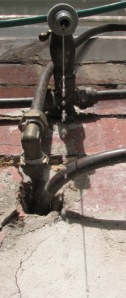 And in Australia, when I remember the scarcity of fresh water, (with the ABS reporting that “most of Australia is classified as semi-arid or arid”) I am even more thankful and humbled at this gift from God.
And in Australia, when I remember the scarcity of fresh water, (with the ABS reporting that “most of Australia is classified as semi-arid or arid”) I am even more thankful and humbled at this gift from God.
This is important, because God isn’t saving us out of the world. I hold onto the ancient words of the Prophets and the hope of Jesus who began the work of bringing in God’s Kingdom. In this I can believe with Farrelly that my care for water, as with everything else, can take place:
…at the foot of the Cross, where we grasp that the old is passing away, and that all things—people, creatures, and the land—are becoming new.”
This isn’t an easy or clear-cut story. Tomorrow morning when I go to have a wash, I’ll again face the choice between my own greed and selfishness, or taking another Way. While the immediate enjoyment of a self-indulgent shower could entice me to luxuriate, it’s my hope that in this and other ways I’ll choose to learn of the joy and peace that comes with worshipping God through my actions of savouring and saving these drops.
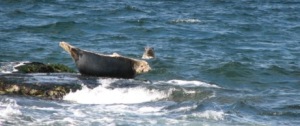

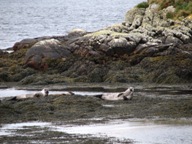






 The Mission Studies Network (Victoria) is organising a discussion on
The Mission Studies Network (Victoria) is organising a discussion on 